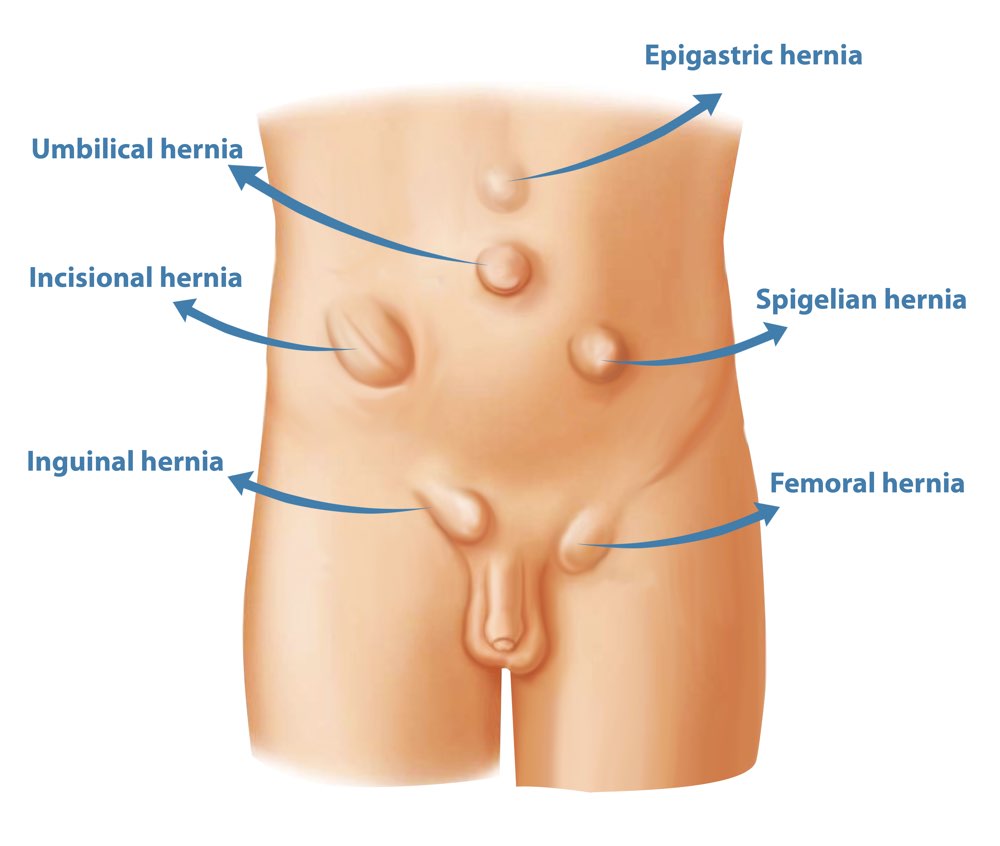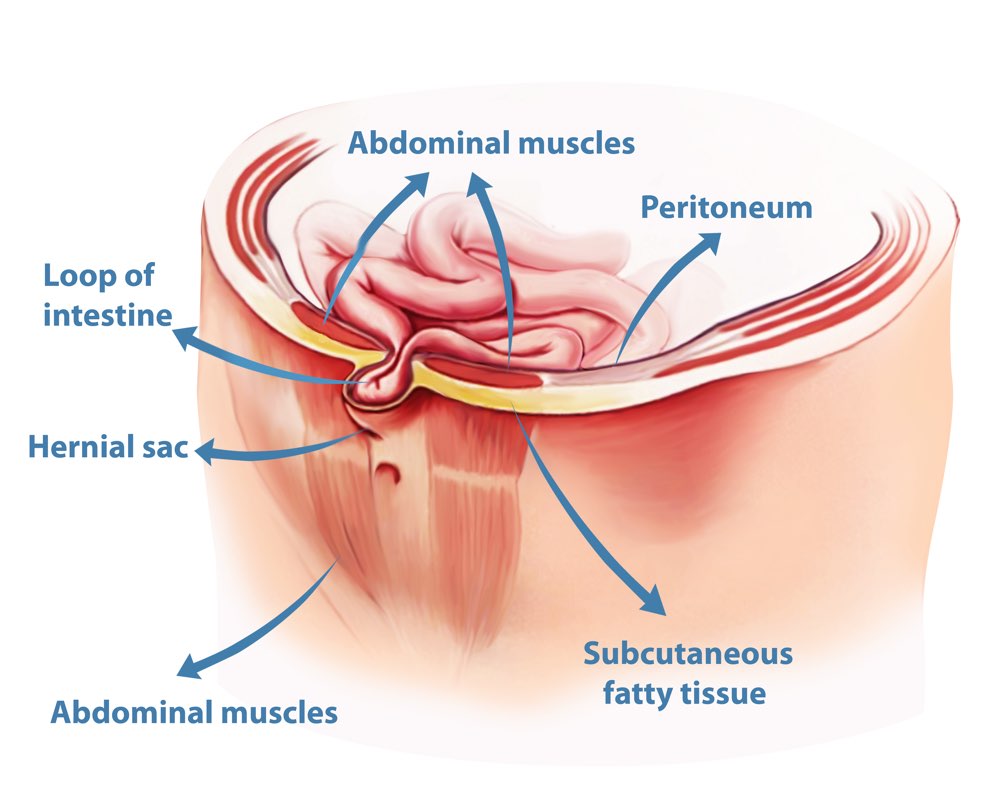Other Types of Hernia
This is an overview of various types of hernias. They all occur at the weaker points of the abdominal muscles and they can cause serious complications if intestine gets trapped into a hernia. It is important to see your specialist at The Hernia & Gallbladder Centre for an early diagnosis, to avoid complications which make it harder to repair the hernia at a later stage.
Incisional hernia
An incisional hernia is linked to a weakness at the site of a surgical scar, if you have had previous surgery. An incisional hernia often appears long after the previous surgery and its size can vary. Once it becomes larger, it may be harder to repair and there is always the risk of complications as it may trap part of your intestine.
The risks are serious when bowel tissue is strangulated, causing a life-threatening situation when the blood supply is cut off. In this case emergency surgery may be required. This is why it is essential to speak to one of our specialist surgeons if you believe that you may have an incisional hernia.
The first step is to give you clarity. At The Hernia & Gallbladder Centre in Perth, we value clear communication about your assessment and diagnosis. And the next step is to organise expert surgery for you and to make sure that you feel comfortable and supported throughout your treatment journey.

Femoral hernia
A femoral hernia is named after the femoral artery, in the lower part of the groin. When you overstrain, intestine or fat bulges through a weak spot of the abdominal wall in this area, and when it pushes through the wall of the femoral canal, it is called a femoral hernia.
Women are more likely to suffer from this type of hernia. That is because the condition is often linked to the weakening of the femoral canal during pregnancy.
Typically, a femoral hernia appears as a bulge in the groin or thigh area. The bulge can be the size of a grape, which is why most patients don't really experience any symptoms. But a femoral hernia may contain intestine, and in that case an emergency can be triggered when the intestine becomes strangulated. Even with a small femoral hernia, it is recommended to speak to our specialist surgeons at The Hernia & Gallbladder Centre WA in Perth, to discuss pre-emptive treatment.
Our specialist surgeons build on many years experience performing open and laparoscopic surgery for femoral hernias or other types of hernia.
Umbilical hernia
An umbilical hernia is diagnosed when a piece of fat tissue or intestine protrudes through the abdominal wall in the belly button area. It is important to know that an umbilical hernia will not resolve through natural healing, and that it may lead to further complications if left untreated. The umbilical hernia repair surgery consists of pushing back the intestine and the abdominal lining, and of repairing the hole in the abdominal wall. Usually your surgeon at The Hernia & Gallbladder Centre will insert a synthetic mesh, to strengthen the area.
Epigastric hernia
An epigastric hernia is another type of hernia we treat at The Hernia & Gallbladder Centre WA in Perth. This hernia type is caused by a weakness of the abdominal wall between the belly button and the sternum of the rib cage. An epigastric hernia is quite common both in children and adults and may even occur in infants. It is noticed as a small mass of fat or a bump.
Similar to other hernia types, an epigastric hernia will not resolve through natural healing. If you believe you may be suffering from a hernia, it is recommended to obtain a diagnosis from our experienced surgeons at The Hernia & Gallbladder Centre WA. Surgery may be required to avoid further complications caused by an epigastric hernia.
We're here to help you with routine tests, a clear diagnosis and expert surgery. And in between, you can count on our team's relentless efforts to care for you and to support you.
About Us
At Hernia & Gallbladder Centre WA we work as a team of expert surgeons, as well as hepatologists, gastro-enterologists and accredited dietitians.

Spigelian hernia
A spigelian hernia is a rare form of hernia treated at The Hernia & Gallbladder Centre WA. A spigelian hernia develops between the rectus muscles (six packs) and the lateral muscles of the abdomen. The occurrence of this type of hernia is higher in men than in women, and often laparascopic surgery can be used to repair the hernia.
Inguinal hernia
Inguinal hernias or groin hernias are the most common hernia types in the abdominal area. This type occurs more frequently in men.
Hiatal hernia
A hiatal hernia is a hernia condition in which part of your stomach pushes up through your diaphragm muscle.
Contact us
Hernia & Gallbladder Centre WA
McCourt St Medical Centre
Level 1, Suite 10, 2 McCourt Street
WEST LEEDERVILLE WA 6007
(Perth)
Hernia & Gallbladder Centre WA
Monday - Thursday | 8.30am - 4.30pm
Friday | 9.00am - 1.30pm
